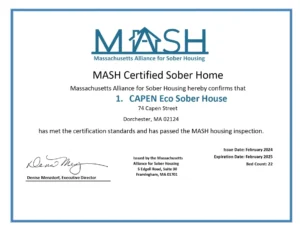While receiving treatment, healthcare providers will want to monitor you continuously to make sure you don’t develop life-threatening complications. Healthcare providers typically prescribe short-term medications to relieve the symptoms of mild to moderate alcohol withdrawal. Some people who go through alcohol withdrawal may experience symptoms alcohol detox side effects for a longer period of time after they quit drinking. Symptoms of PAWS include continued trouble sleeping and mood problems. Most people who develop DTs from alcohol do so within 48 to 72 hours after they stop drinking. This makes the first few days after you quit drinking the most critical and dangerous time of the withdrawal period.
What Are the Immediate and Long-Term Health Benefits After You Stop Drinking Alcohol?
The assessment should also include a validated measure of withdrawal symptom severity, ideally with the same instrument as the initial assessment. Outpatient treatment may be available for mild-to-moderate symptoms of alcohol withdrawal; however, should symptoms become severe, inpatient care may be required. Alcohol withdrawal syndrome can range in severity from mild to fatal, making it crucial for patients to present to care for evaluation of their symptoms. Patients who have had prior complicated withdrawals should not attempt to decrease their alcohol intake without consultation with their healthcare team. If a patient begins experiencing signs and symptoms of severe withdrawal, including but not limited to seizure, altered mental status, or agitation, they should seek emergency care immediately.

Suicide prevention
According to Hilary S. Connery, MD, PhD, the clinical director of the division of alcohol, drugs, and addiction at McLean Hospital in Boston, withdrawal medications are suitable for most people. Other risk factors include previous episodes of severe alcohol withdrawal. The first symptoms—and maybe the only symptoms—you experience may resemble a bad hangover. She adds that withdrawal can also occur after a significant reduction in alcohol consumption. Severe and complicated alcohol withdrawal requires treatment in a hospital — sometimes in the ICU.

Patient resources
Since alcohol withdrawal can result in serious health issues or a loss of life, trying the detox process alone isn’t a good idea. Wernicke encephalopathy may occur in people who have a thiamine (vitamin B12) deficiency, a condition that is common among those addicted to alcohol. One person may complete detox within a few days while another struggles and experiences symptoms for a week or more. However, how long it will take to detox is based on the severity of the addiction.
Rapid alcohol detox is a detox method that utilizes anesthesia and other medications to rapidly eliminate alcohol from the body. This is a controversial detox method that is faster than traditional alcohol detox and may not be suitable for everyone. Doctors and pharmacists are always warning people with epilepsy about alcohol.
How Should I Manage Alcohol If I Have Seizures Or Epilepsy?
A rare but very serious syndrome called delirium tremens can occur during alcohol withdrawal. Also known as DTs, an estimated 2% of people with alcohol use disorder and less than 1% of the general population experience them. If your blood pressure, pulse, or body temperature rises, or if you have more serious symptoms like seizures and hallucinations, seek medical care immediately (dial 911).
- GABA also helps produce endorphins in the brain, which produce a sense of well-being.
- For example, a person with mild to moderate alcohol use disorder may only experience stage one symptoms.
- On top of those mostly empty calories, alcohol ramps up your appetite.
- Chronic substance use has links to cardiovascular, kidney, and liver disease.
- Patients with alcohol hallucinosis see, hear, or feel things that are not there even though they are fully conscious and aware of their surroundings.
Quitting Drugs Cold Turkey

If you’re addicted to alcohol and have been drinking heavily for years, you’re at risk for this complication. If you drink regularly then suddenly stop, you’ll likely experience alcohol withdrawal symptoms within six to twelve hours of your last drink. If you don’t drink heavily, these symptoms may pass in as little as 48 hours. For example, a person with mild to moderate alcohol use disorder may only experience stage one symptoms. In contrast, a long-term, heavy drinker is more likely to experience symptoms of all three stages.
Other drugs may interact with diazepam, including prescription and over-the-counter medicines, vitamins, and herbal products. Diazepam can slow or stop your breathing, especially if you have recently used an opioid medication or alcohol. A person caring for you should seek emergency medical attention if you have slow breathing with long pauses, blue colored lips, or if you are hard to wake up.
